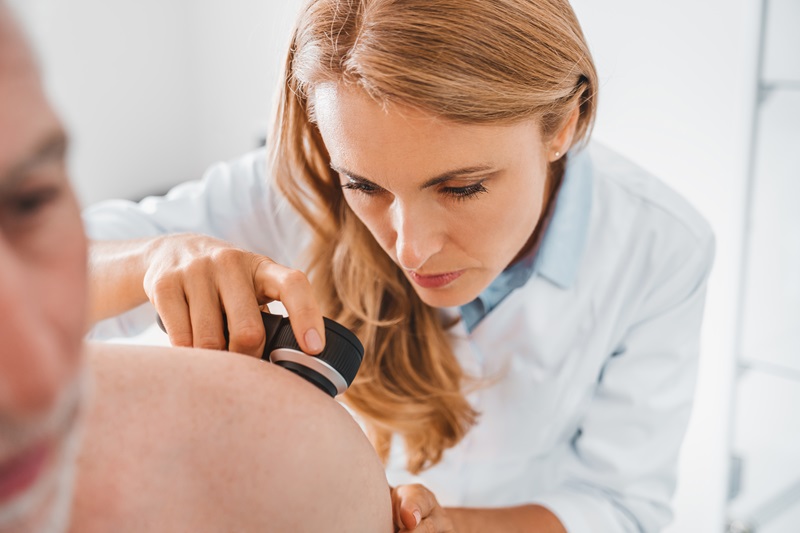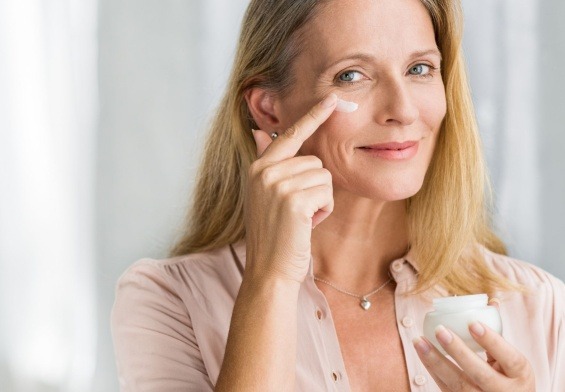In the tapestry of elder care, the health and well-being of our seniors hold paramount importance. Among the various health concerns that accompany aging, skin cancer emerges as a significant threat, particularly due to the increased vulnerability of the elderly to UV radiation. This comprehensive guide is dedicated to empowering caregivers, in-home care professionals, and families with essential knowledge and strategies for effective skin cancer prevention and care in seniors, including those living with dementia.
Table of Contents
ToggleUnderstanding Skin Cancer Risks in the Elderly
As we age, our skin undergoes changes that heighten the risk of skin cancer. Factors contributing to this increased risk include cumulative UV exposure, a weakened immune system, and thinner skin. Recognizing and addressing these factors is crucial in elder care for effective prevention and early detection of skin cancer.
The Crucial Role of Caregivers in Skin Cancer Prevention
Caregivers are on the frontline in the battle against skin cancer in seniors. Their roles encompass:
- Educational Outreach: Educating seniors and their families about the dangers of UV exposure and the importance of protective measures.
- Regular Skin Checks: Assisting in monthly self-examinations and monitoring for any new or changing skin lesions.
- Scheduling Dermatological Appointments: Facilitating regular visits to dermatologists for professional skin evaluations.
- Implementing Sun Safety Practices: Ensuring seniors are adequately protected from the sun, particularly during peak UV hours.
Sun Protection Strategies for Seniors
- Sunscreen Use: Applying a broad-spectrum sunscreen with an SPF of 30 or higher on all exposed skin areas, even on cloudy days. Reapplication every two hours, or after swimming or sweating, is crucial.
- Protective Clothing: Encouraging the use of sun-protective clothing, such as long-sleeved shirts, wide-brimmed hats, and UV-blocking sunglasses.
- Seeking Shade: Utilizing umbrellas, canopies, or tree shade, especially between 10 AM and 4 PM when the sun’s rays are strongest.
- Avoiding Tanning Beds: Educating seniors about the risks associated with tanning beds and sunlamps.
Nutritional Support for Skin Health in the Elderly
A balanced diet rich in antioxidants can support skin health in seniors. Foods high in Vitamin C, Vitamin E, and beta-carotene are particularly beneficial. For seniors with limited sun exposure, vitamin D supplements can be a safe alternative to meet their daily requirements without risking UV damage.
Enhancing Indoor Safety for Seniors
Indoor safety is as crucial as outdoor sun protection. Caregivers should ensure that seniors’ living spaces are well-ventilated and have sufficient natural light, reducing the need for excessive outdoor time during peak sun hours. Installing UV-protective films on windows can significantly reduce UV radiation exposure indoors.
Personalized Skin Care Routines for Seniors
As skin ages, it becomes more delicate and susceptible to damage. Caregivers can assist seniors in developing personalized skin care routines that include gentle cleansing, moisturizing with products suitable for sensitive skin, and regular application of sunscreen. This routine not only protects the skin from UV damage but also promotes overall skin health.
Educating Seniors on Skin Cancer Signs
Knowledge is a powerful tool in cancer prevention. Caregivers should educate seniors about the ABCDEs of melanoma (Asymmetry, Border irregularity, Color variation, Diameter greater than 6mm, Evolving size, shape or color) and other signs of skin cancer. This knowledge empowers seniors to be proactive in monitoring their skin and reporting any concerns.
Technology Integration in Skin Cancer Prevention
Leveraging technology can enhance skin cancer prevention efforts. Caregivers can use apps and tools designed for tracking UV exposure and reminding seniors to apply sunscreen. Digital photography can also be used to document and monitor any changes in skin lesions or moles over time.
Professional Training for Caregivers in Skin Health and Cancer Prevention
Investing in professional training for caregivers on skin health and cancer prevention is vital. This training should cover the basics of skin anatomy, the impact of UV radiation, early signs of skin cancer, and emergency response procedures in case of severe skin reactions or related health issues.
Building a Supportive Community for Senior Skin Health
Creating a supportive community around seniors can greatly enhance prevention efforts. This includes engaging family members in skin cancer awareness, organizing community skin health workshops, and collaborating with local health care providers for regular skin screening campaigns.
Regular Review of Medications and Their Impact on Skin Health
Some medications can increase sensitivity to sunlight, leading to a higher risk of skin damage. Caregivers should regularly review the medications seniors are taking and consult with healthcare providers to understand any potential risks and necessary precautions.
Advocacy and Awareness Campaigns in Elder Care
Caregivers and in-home care services can participate in advocacy and awareness campaigns to promote skin cancer prevention. These campaigns can involve distributing educational materials, organizing community events, and collaborating with local health organizations to spread awareness about skin cancer risks and prevention strategies.
Continuous Learning and Adaptation in Skin Cancer Prevention
The field of skin cancer prevention is continually evolving. Caregivers should stay informed about the latest research, prevention techniques, and treatment options. This ongoing learning ensures that seniors receive the most current and effective care.
Conclusion
Comprehensive skin cancer prevention for seniors is a multifaceted endeavor that extends beyond simple sun protection measures. It involves a holistic approach encompassing education, regular skin care, nutritional support, community involvement, and continuous adaptation to new knowledge and techniques. Caregivers play a crucial role in implementing these strategies, ensuring that seniors are well-protected against the risks of skin cancer and enjoy a higher quality of life in their golden years.




